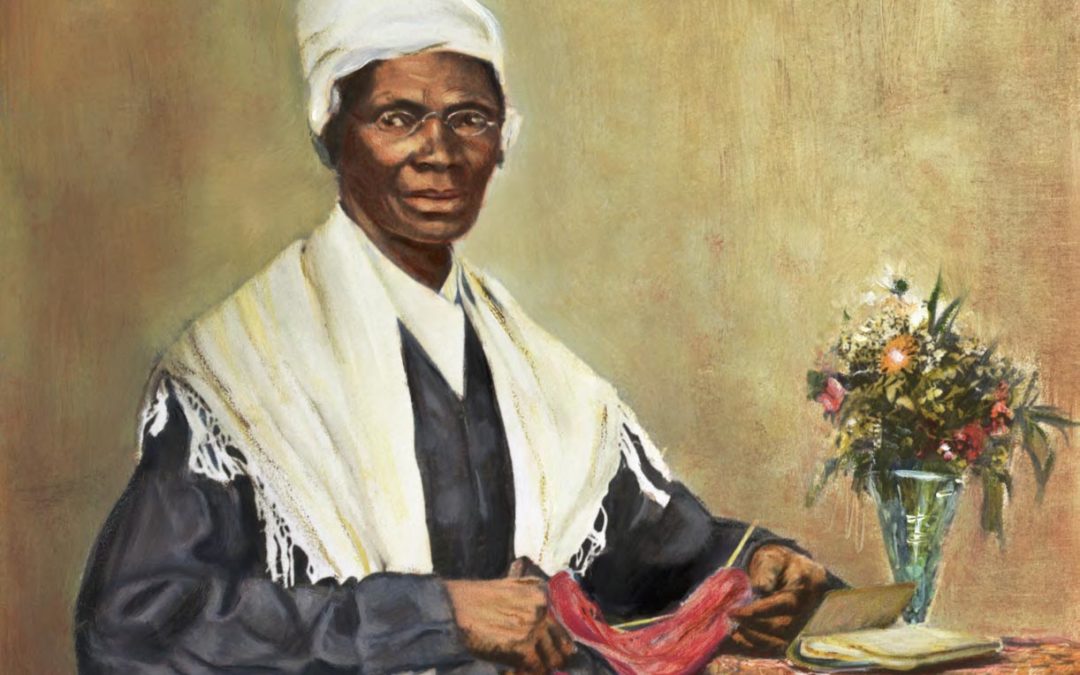by Sojourner White—
Growing up with the name “Sojourner” is a lifelong ice-breaker. People say: “What a beautiful name! What does it mean?” Or “I love your name. Where have I heard it before?” I’ve come to embrace their questions.
I’ll tell you what I tell them. My namesake, Sojourner Truth, was a U.S. abolitionist and women’s rights activist who reclaimed her freedom after slavery and dedicated her life to improving the quality of life for her people and all women. Every year on March 10, the ELCA commemorates Sojourner Truth as a renewer of society. She was the first black woman to win back her son, Peter, who had been sold illegally to a white man. Sometimes I tell people that Sojourner could not read or write. But what many people don’t know about Sojourner is her devotion to God. God changed the direction of her journey, just as God led me to mine.
Though born a slave and given the name Isabella Baumfree, Sojourner did not let her circumstances kill her faith. Starting at the age of 9, she was sold multiple times to violent, white slave owners and their sons. She was beaten for not speaking English correctly. Her first child was stillborn and a product of rape by one of her slave masters. She was forbidden to be with the man she loved because they were owned by different plantation owners, and thus, their children could not be shared property. She was verbally promised her freedom before legal emancipation, but that promise was cruelly rescinded. Three of her children were sold away from her.
Nevertheless, Sojourner persisted and escaped to freedom. She began working as a free woman and attended worship services at a church. There she befriended religious abolitionists and became closer to God. With encouragement from her newfound religious community, she pursued preaching. She felt spiritually compelled to change her name from Isabella to Sojourner in the mid-1800s. She wandered the rest of her days, preaching the abolition of slavery and advocating for full rights for women.
When I was 8, I was not thrilled to learn this history. I resented being named after Sojourner Truth. Why would my mom give me such a difficult name? It was never on any keychains in gift shops. Hardly anyone could pronounce it correctly. I despised roll call because a classmate would always yell “Truth” after the teacher said my name, making all the other students look at me and laugh.
During African-based libations—where my community honors the sacrifice of ancient, historical ancestors by saying their names aloud, pouring water on a plant to replenish the Earth, and speaking the word, Ashe, to show agreement—I always felt obligated to say, “Sojourner Truth.” For an introverted kid, the legacy bestowed upon me felt more of a burden than an honor.
It wasn’t until a 5th-grade trip to Sojourner’s grave in Battle Creek, Michigan, that things became clearer. My mom told me that Battle Creek was not only the city where Sojourner died but the place where I was thought into existence. As a girl, my mom spent one week each summer in Battle Creek. During one visit, my mom told her Great Aunt Willa Mae that she was bored. My mom’s great-aunt handed her a book, The Autobiography of Sojourner Truth, and told her to read it. It changed the life my mother would live.
Sojourner White is a fourth generation Lutheran,Fulbright Scholar and member of The Table in Milwaukee. She combines her love of food, writing and travel on her blog Sojournies.com.
This article is excerpted from the March 2018 issue of Gather magazine. To read the full story or more like it, subscribe to Gather.





I so enjoyed reading this. Ms. White was indeed blessed to have a grandmother with a book, a special book, and the wisdom that changed her granddaughter’s life! So often we allow “teachable moments” pass, little snips of time, opportunities that can change one life, and with that one, so many more.